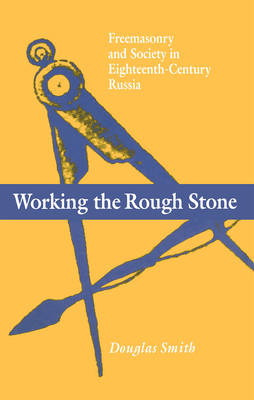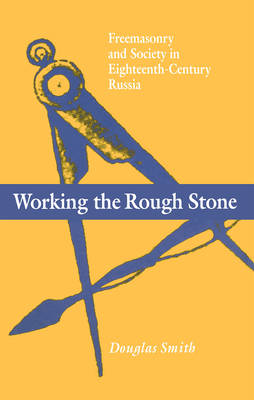
- Retrait gratuit dans votre magasin Club
- 7.000.000 titres dans notre catalogue
- Payer en toute sécurité
- Toujours un magasin près de chez vous
- Retrait gratuit dans votre magasin Club
- 7.000.0000 titres dans notre catalogue
- Payer en toute sécurité
- Toujours un magasin près de chez vous
Description
Using a wealth of archival sources previously unavailable to scholars, Smith examines the forces that attracted many social and intellectual leaders of eighteenth-century Russia to Freemasonry as an instrument for change and progress. By "working the rough stone" of their inner thoughts and feelings, such men sought to become champions of moral enlightenment and to create a vision of social action that could bring about change without challenging the social and political precepts on which Russia's stability depended.
By challenging a number of long-held notions about Russian society, Smith broadens our understanding of the complex history of eighteenth-century Russia. Engagingly written and richly illustrated with rare engravings of Masonic life and ritual, this volume will appeal to readers interested in Russia, Europe, the Enlightenment, and the history of Freemasonry.
Spécifications
Parties prenantes
- Auteur(s) :
- Editeur:
Contenu
- Nombre de pages :
- 267
- Langue:
- Anglais
- Collection :
Caractéristiques
- EAN:
- 9780875802466
- Date de parution :
- 01-05-99
- Format:
- Livre relié
- Format numérique:
- Genaaid
- Dimensions :
- 160 mm x 235 mm
- Poids :
- 612 g

Les avis
Nous publions uniquement les avis qui respectent les conditions requises. Consultez nos conditions pour les avis.






